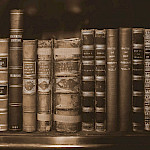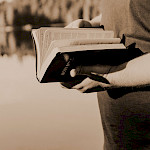"Read! Read! Read!" (2)
“The cloke that I left at Troas with Carpus, when thou comest, bring with thee, and the books, but especially the parchments.” (2 Timothy 4:13)
John Wesley had no sympathy for the preacher who is not a serious student. He said, “Gentlemen, either read or get out of the ministry.”
Wesley exhorted a preacher friend as follows: “What has exceedingly hurt you in time past, nay, and I fear to this day, is want of reading. I scarce ever knew a preacher read so little. And perhaps by neglecting it you have lost the taste for it. Hence your talent in preaching does not increase. It is just the same as it was seven years ago. It is lively, but not deep: there is little variety; there is no compass of thought. Reading only can supply this, with meditation and daily prayer. You wrong yourself greatly by omitting this. You can never be a deep preacher without it any more than a thorough Christian. O begin! Fix some part of every day for private exercises. You may acquire the taste which you have not; what is tedious at first will afterwards be pleasant. Whether you like it or no; read and pray daily. It is for your life; there is no other way; else you will be a trifler all your days, and a petty, superficial prayer” (John Wesley to John Trembeth, August 1760).
C.H. Mackintosh said, “We observe, with deep concern, a growing distaste for solid reading, specially amongst young Christians. Our reading may be taken, as a rule, as the great indicator of our moral, intellectual and spiritual condition.”
Charles Spurgeon had very little formal education and no formal theological training, but he had a great passion for learning. He was what is called an autodidact (self-educator). He was reading deep theological books by Puritans in his grandfather’s library by age 10. He read constantly and widely. It is said that he read six books a week.
Spurgeon advised the preachers in his Bible College, “Sell your shirt and buy books.”
Spurgeon said, “A little library, growing larger every year, is an honorable part of a young man's history. It is a man's duty to have books. A library is not a luxury, but one of the necessities of life. ... The influence of books upon man is remarkable; they make the man.”
Previous article Next article




